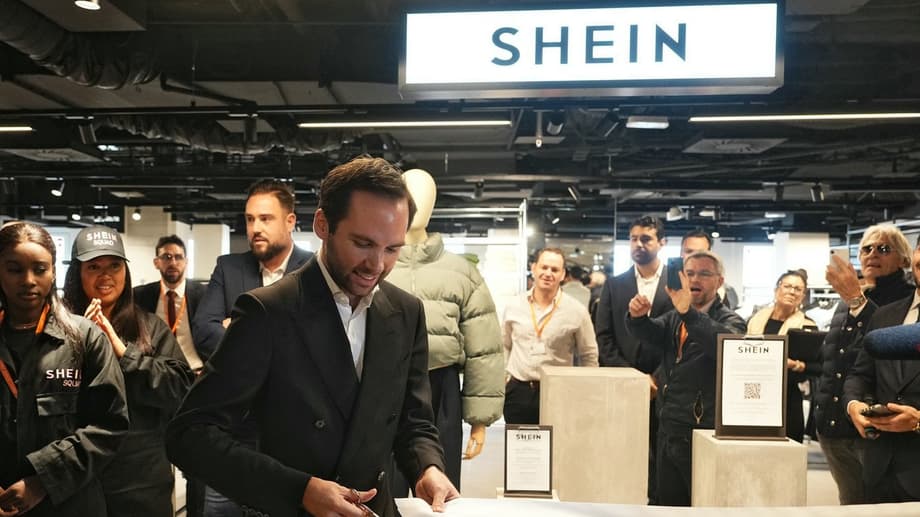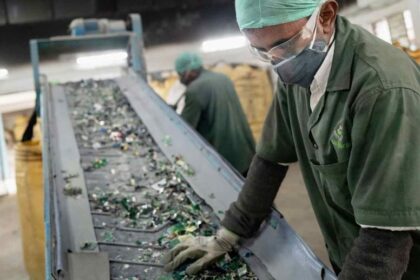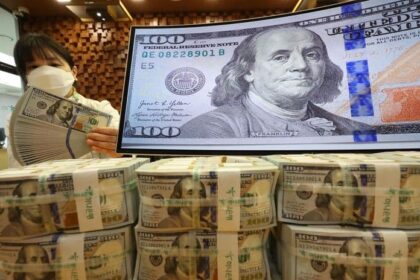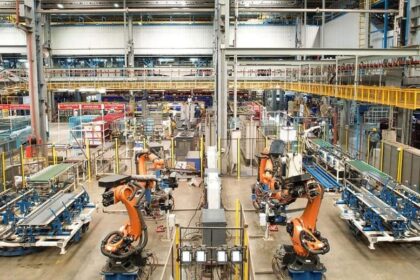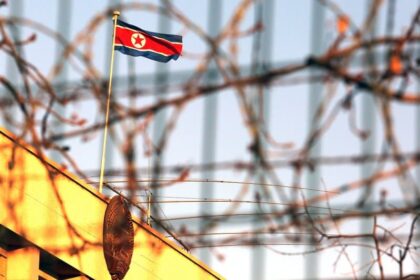Why Italy is tightening scrutiny of ultra fast fashion
Italy is moving to tighten oversight of Shein after France introduced restrictions on ultra fast fashion. The aim is twofold, to shield a huge domestic industry built on small workshops and luxury houses, and to address claims about sustainability and labor conditions that regulators say are misleading. The shift marks a rapid escalation in Europe’s response to low cost platforms that sell thousands of new items every day and ship them directly to shoppers.
France has already approved new rules to curb extreme production and textile waste. Those rules include environmental surcharges per item, advertising limits, and stricter disclosure of sustainability claims. Italian officials are now drawing up their own playbook. Draft measures under review in Rome would require fashion producers to help pay for the collection and recycling of garments at the end of their life. The government is also weighing an extra levy on imports sold by online platforms that thrive on bargain pricing.
Shein has become one of the most popular shopping apps in Italy, drawing tens of millions of users with rock bottom prices and near constant releases. That growth has alarmed local manufacturers who say they cannot match prices from suppliers outside the European Union while also meeting Italy’s strict labor, safety, and tax standards. Unions and sustainability groups add a second set of concerns, the environmental footprint of an engine that promotes constant buying and quick disposal. Recent figures put the app’s Italian user base at about 23 million.
Regulators have started to act. In August 2025, the Italian Competition Authority (AGCM) fined Shein 1 million euro for what it called misleading and deceptive environmental messaging. The agency said Shein’s promises on recyclability, circularity, and a path to lower emissions were vague or confusing, and even contradicted by rising emissions in 2023 and 2024. That sanction followed a larger penalty in France a month earlier for fake discounts and similar green claims.
What Italy is proposing
The government has signaled a plan to impose an extra levy on low cost fashion imports sold by platforms such as Shein and Temu. The aim is to counter what officials describe as unfair competition and to help finance the growing cost of textile waste. The plan would sit on top of a broader program tied to a European Union directive on producer responsibility. That program would require makers to fund collection, sorting, and recycling once garments become waste, with the same rules applying to foreign sellers and Italian brands.
Extended Producer Responsibility explained
Extended Producer Responsibility, often shortened to EPR, shifts part of the waste burden from taxpayers to the companies that place products on the market. In fashion, an EPR scheme means brands and sellers pay fees that reflect the downstream costs of dealing with discarded clothes. The money supports municipal systems that take back textiles, sort them, and try to recycle fibers that are hard to process. EPR is already used for packaging and electronics in several EU countries, and policymakers want to apply it to textiles to slow the tide of waste headed to landfills and incinerators.
A levy aimed at online platforms
Italian officials argue that a separate levy is needed because the competitive pressure from ultra fast platforms is immediate and intense. Millions of parcels arrive from outside the EU each day, often declared at very low values. This lets merchants undercut prices while the environmental and labor costs are borne elsewhere. The levy is meant to level prices, encourage better compliance with EU product rules, and support workers in Italy’s supply chain. The plan would also complement other steps against abuse in subcontracting, after a series of cases in which workshops were placed under judicial administration to fix working conditions.
Greenwashing penalties and consumer protection
AGCM’s greenwashing case focused on how Shein presented projects like evoluSHEIN and claims about recyclable products and lower emissions. Investigators said the language used on website sections such as social responsibility and #SHEINTHEKNOW was often vague or overstated. The authority also challenged a pledge to cut greenhouse gas emissions by 25 percent by 2030, pointing to data that showed emissions increasing in 2023 and 2024.
European regulators are also examining discount practices and the sale of illegal products online. France already fined the company for fake discounts and misleading green claims. At the EU level, consumer protection authorities and the European Commission have opened probes that test whether platforms are complying with the Digital Services Act, which requires faster removal of illegal listings and stronger product safety controls. That is part of a larger push to address the flood of small parcels into the bloc, including a plan to add a flat fee per cross border parcel sent directly to consumers.
In explaining the Italian fine, AGCM, the national competition authority, summed up its findings bluntly.
“Shein used environmental claims that were vague, generic, or overly emphatic, and its emissions pledges were contradicted by an actual increase in 2023 and 2024.”
Shein said it cooperated with the inquiry and adjusted its website so that environmental claims are clearer and verifiable.
Pressure to protect Made in Italy
Industry groups have pressed Rome to move faster, arguing that an avalanche of cheap imports is eroding standards on transparency and traceability. Carlo Capasa, who leads Camera Nazionale della Moda Italiana, has urged both Italy and the European Commission to match France’s action. He warned that untaxed parcels are flooding the market and that companies following the rules cannot match prices pushed out by platforms that operate with minimal oversight.
Ministers have also tied new rules to a broader cleanup of the fashion supply chain inside Italy. Prosecutors have investigated abusive conditions at some subcontractors serving luxury brands, and several firms have been placed under judicial administration to raise compliance. Lawmakers are considering a voluntary certification that would allow companies that meet strict monitoring standards to use a “Certified Fashion Supply Chain” label supervised by government bodies.
Environmental and health concerns tied to ultra fast fashion
The environmental critique of ultra fast fashion goes beyond marketing language. Greenpeace Germany commissioned independent lab tests on dozens of Shein items bought in several European countries and reported hazardous chemicals in a share of the products, including formaldehyde in a baby dress and very high levels of phthalates in footwear. The group said 15 percent of items tested breached EU limits for chemicals in textiles and 32 percent contained chemicals at levels of concern. Findings like these reinforce the push for stricter checks on what enters EU markets and for better enforcement of existing rules.
Under the EU’s chemicals rulebook known as REACH, strict limits apply to substances in clothing, accessories, and shoes. Hazardous residues are a barrier to textile recycling too, because contaminated fibers cannot be easily turned back into new fabric. That reality undercuts the marketing promise of a circular system if garments are made with blends and finishes that current recycling technologies cannot process safely.
Campaigners also point to the waste footprint. Only a tiny fraction of textiles are recycled into new textiles, and vast volumes of used clothes end up in landfills or are shipped abroad. Ultra fast platforms accelerate that cycle by releasing thousands of styles per day, keeping prices so low that many items are worn only a handful of times.
How Shein responds
Shein says it follows the law in markets where it operates and is strengthening its internal controls. After being contacted by AGCM, the company said it took immediate steps to improve the clarity and verification of environmental claims on its European websites. The company has also publicized investments in textile to textile recycling projects in Europe worth around 200 million euro, and it says its supplier code bans forced labor. Shein says it does not source cotton from Xinjiang for products headed to the United States.
Shein’s growth has offset some pressure from tariffs in the United States by leaning into European markets. At the same time, regulatory questions have complicated its plan to list shares. Efforts to stage an initial public offering in London stalled, and the company has prepared a confidential filing in Hong Kong, according to people familiar with the process.
What shoppers and brands should expect
If Italy adopts an EPR scheme for textiles and adds a levy on ultra fast imports, shoppers are likely to see higher prices on certain items and clearer labeling about sustainability claims. Advertising limits modeled on the French approach could reduce the constant push notifications and discount blitzes that drive impulse buying. Platforms may change logistics to route more stock through European warehouses to simplify compliance, which could lengthen delivery times or alter return policies.
Italian brands and workshops could gain some breathing room if prices at mass market platforms rise and if enforcement closes the gap on taxes, product safety, and labor oversight. That would not remove pressure to compete on speed and design, but it would reward companies that already invest in traceability and worker protections. For all players, stronger consumer protection rules and EPR fees will make clarity on claims and supply chain control a baseline condition of doing business in Europe.
Key Points
- Italy is preparing measures to scrutinize Shein and other ultra fast platforms after France rolled out new rules.
- Plans include an EPR scheme for textiles and a separate levy on low cost imports to support waste management and fair competition.
- AGCM fined Shein 1 million euro in August 2025 for misleading environmental claims and emissions pledges.
- France fined the platform 40 million euro for fake discounts and greenwashing a month earlier.
- Industry leaders urge action to protect Made in Italy and to enforce transparency and traceability.
- Greenpeace Germany reported hazardous chemicals in some Shein items sold in Europe, adding pressure for stronger checks.
- Shein says it has improved claim verification, invested in recycling, and bans forced labor in its supplier code.
- Higher prices, clearer labels, and tighter oversight of online marketplaces are likely as measures take effect.


